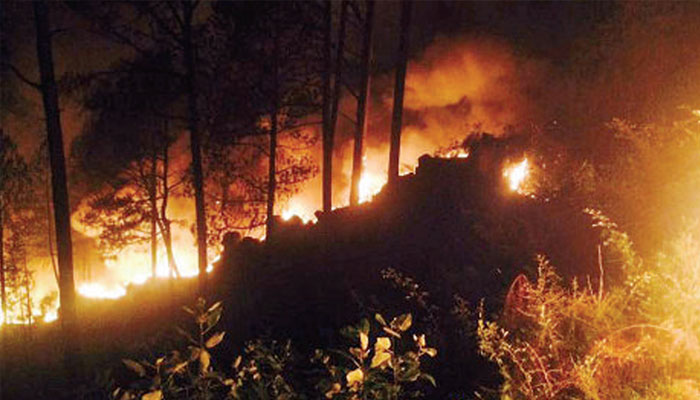
The entire South Asian landmass is going through a record breaking heatwave. In addition to the human toll this heatwave has taken, there have been a series of forest fires across the country from Musari and Phapreer areas in Murree, to Kamalia near Toba Tek Singh and Kahuta. To this we can add the forest fire on the Koh-i-Sulaiman range in Balochistan’s Shirani area. While all of these fires have created havoc, the Shirani inferno has destroyed 30pc of the pine nut forest.
As an editorial in Dawn noted, “these fires are a by-product of the larger phenomenon of climate change, that is also responsible for the soaring temperatures being experienced across the country. However, the authorities’ tackling of these fires exposes the government’s forest management and disaster response systems as underprepared to handle freak climatic events.”
As heatwaves become more frequent and more intense with time, Pakistan needs to plan for such eventualities. According to the Global Food Policy Report 2022, “heatwaves such as the ongoing one in the country will increase at the shocking rate of 0.71 days per decade in Pakistan. Though Balochistan officials have vowed increased vigilance of forests, that in itself is not enough unless the forest department staff is trained to prevent such incidents and equipped with the requisite gear.”
In conclusion, “with the damaging effects of climate change already upon us, it is high time that we adjusted to grim new realities and took measures to preempt the adverse effects of changing weather patterns.”
![]()





